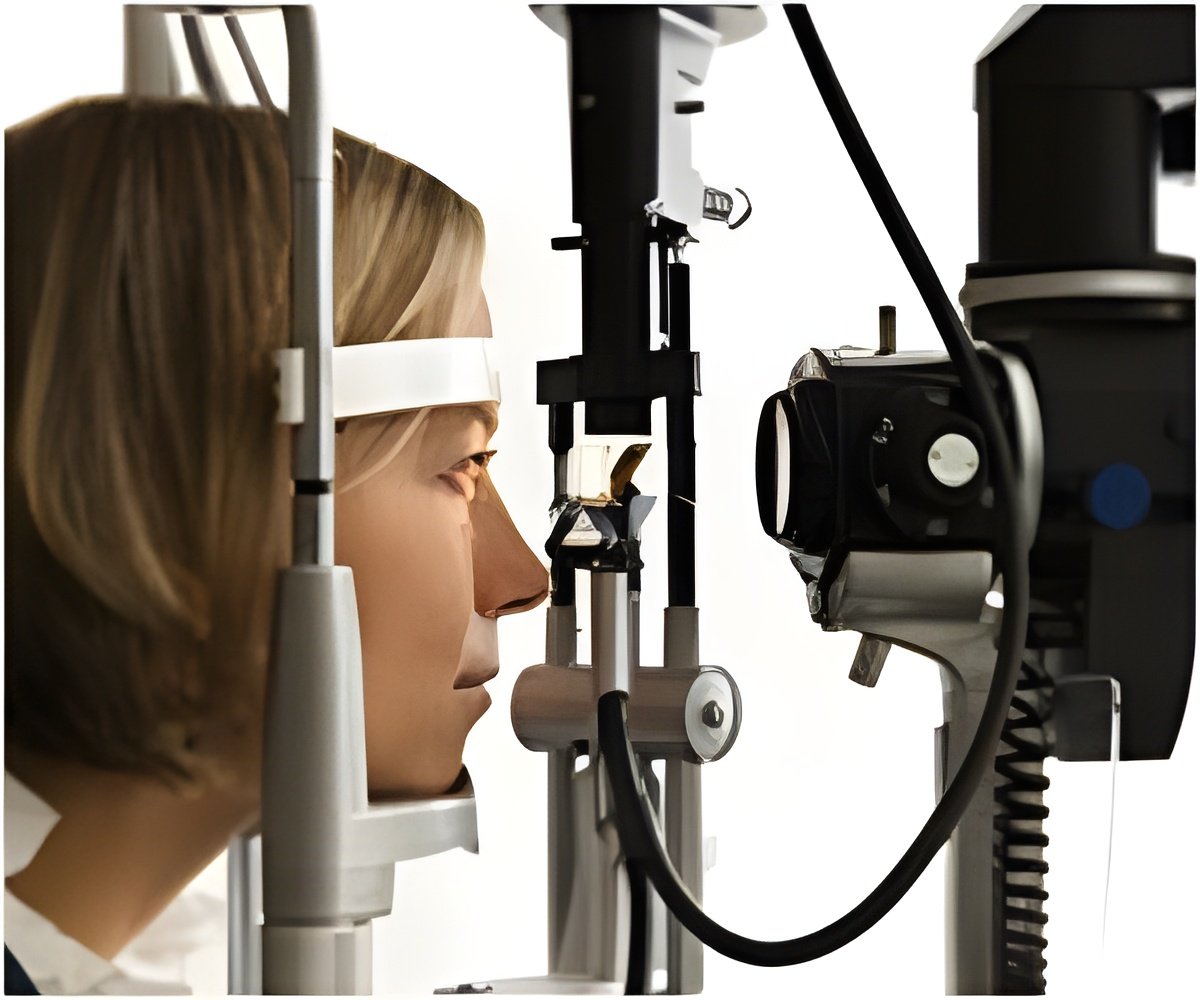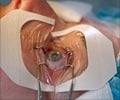
"He wanted a way to control temperature, humidity and air flow all around the eyes and record it over time so he could track changes in their dryness," said Daniel Hays, a member of Team ClimaTears, the student group that included Austin Edwards, Amanda Shih, Anastasia Alex and Michelle Kerkstra.
The students' solution incorporates a modified and padded set of laboratory goggles with embedded data sensors that monitor temperature, relative humidity, air flow and blink rate over an hour and a half. A cable carries data saved every 10 seconds to a small box that includes controls and conditioning equipment. A separate hose carries air to the goggles.
The goggles keep the humidity of air around the eyes between 40 and 15 percent -- "about as low as we can go without hurting patients," Alex said.
"We're exacerbating the symptoms so doctors can see them," Hays explained. Normal patients will produce tears, he said, but those who suffer dry eye will exhibit symptoms, which will give clues about how to treat them. Follow-up sessions with the goggles will let doctors see how well the treatment is working.
"With this, we're putting the power in the hands of clinicians, which is very appealing to them," Shih said.
Advertisement
"We hope our device will create a gold standard for diagnosis," Kerkstra said.
Advertisement
Their work has already paid dividends. The students won the grand prize, $1,500, in the second annual Rice Alliance-George R. Brown School of Engineering Senior Design Elevator Pitch Competition last November, and more recently $500 for the Best Health-Related Engineering Design Project at the School of Engineering Design Showcase held April 14.
The team's faculty advisers were Renata Ramos, a Rice lecturer in bioengineering, and Maria Oden, professor in the practice of engineering education and director of Rice's Oshman Engineering Design Kitchen, where the goggles were developed.
Source-Eurekalert











